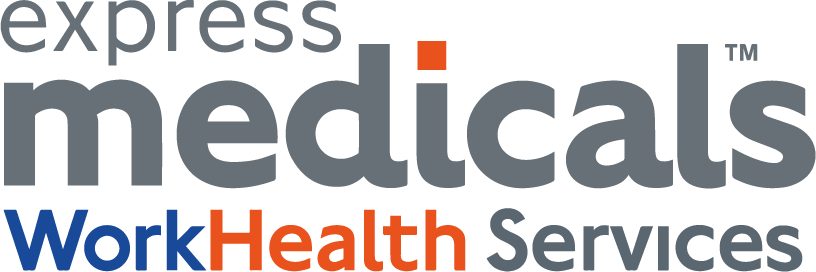Promoting occupational health literacy in the workplace
Occupational health literacy and awareness form the cornerstone of workplace safety. Far beyond a healthcare trend, promoting health literacy empowers employees to make informed decisions about their wellbeing.
Many employees find it challenging to understand and apply health information in their daily roles. From deciphering safety guidelines to recognising early warning signs of workplace hazards, the journey isn't always straightforward. The NHS estimates that around 10 million adults in the UK have limited health literacy, highlighting a knowledge gap with real consequences. Without adequate occupational health awareness, incidents can be overlooked, absenteeism rises, and compliance issues become costly - especially in high-risk sectors such as rail, construction, transport and logistics, utilities and manufacturing.
The encouraging news is that there are many resources available to enhance occupational health literacy in your workplace. Read on to find out how you can inspire your team to participate in their own health and safety and build a culture where each person is equipped and motivated to champion occupational health every day.
Understanding occupational health literacy in your workplace
Occupational health represents every employee's ability to seek out, comprehend and use health and safety information confidently in their specific work environment. Promoting strong occupational health literacy ensures your team can interpret safety data sheets, fully understand drug and alcohol testing policies, identify mental health warning signs and follow procedures that protect themselves and others.
When employees are health-literate, they shift from being passive recipients of health and safety instructions to becoming engaged stewards of workplace safety. However, when team members don’t fully understand key information, workplace incidents become more likely, close supervision is needed and policy compliance may suffer. Employees can misread safety protocols, skip important screenings or fail to report hazards - all of which undermine a safe and healthy workplace.
Industry-specific occupational health literacy challenges
Every sector faces unique occupational health literacy and awareness demands, making tailored approaches essential.
Occupational health considerations for the rail industry
The rail industry is governed by strict safety regulations, where one misstep can have major consequences. Promoting occupational health literacy here means ensuring all workers understand complex safety protocols, accurately interpret signals, and spot the dangers posed by fatigue or impairment. This awareness must also extend to policies on drug and alcohol use, the impact of shift work, and when and how to seek resources such as Employee Assistance Programmes or a Medication Advice Line such as those offered by Express Medicals. Ultimately, occupational health literacy in rail helps workers protect themselves, their colleagues and the public.
Construction industry occupational health issues
Construction is an environment filled with potential hazards, demanding exceptional vigilance and awareness. Advancing occupational health literacy empowers workers to pinpoint risks, use protective equipment correctly, and understand long-term health implications from risky exposures. This requires clarity around material safety data sheets, recognition of conditions like heat illness and raising awareness about substances such as asbestos or silica - so that every safety measure is understood as vital, never optional.
Occupational health literacy for transport and logistics
In transport and logistics, challenges around driver health, fatigue and substance misuse call for robust occupational health literacy and awareness. Drivers and logistics professionals need practical knowledge of how personal health, medication and lifestyle factors influence safe operation. Foster awareness of hours of service rules, signs of fatigue and impairment, and the crucial importance of honest participation in drug and alcohol testing protocols. The clearer their understanding, the safer your fleet and workforce will be.
Implementing occupational health literacy and awareness
Building a workplace where occupational health literacy and awareness thrive starts with an evaluation of your team’s current level of understanding of workplace safety. You can assess this using surveys, interviews and informal feedback from across your organisation.
Prioritise the creation of clear, accessible materials tailored to your workforce's backgrounds and job roles. Replace technical jargon with straightforward language, include visual aids where possible, and provide information in all necessary languages to ensure true inclusivity.
Diversify your health communication strategies by combining written content with verbal briefings, hands on workshops, and opportunities for peer learning. This multi-pronged effort ensures knowledge reaches everyone, regardless of their preferred learning style. Make it easy for employees to ask questions - through toolbox talks, suggestion boxes, or direct conversations with occupational health professionals - so learning can be continuous and stigma-free.
Supporting mental health and wellbeing through literacy and awareness
Raising mental health literacy and awareness is now a non-negotiable part of your occupational health strategy. Employees need practical information and reassurance that conditions like stress, anxiety and depression are serious and deserve support.
Share clear information about available mental health resources - whether Employee Assistance Programmes, mental health first aid, or in-house counselling services. Equip managers and peers alike to spot warning signs and respond with understanding. Foster ongoing, open dialogue to erode stigma and underscore that accessing support reflects strength and self-awareness.
Conclusion
Promoting occupational health literacy has huge benefits that could lead to fewer workplace incidents, stronger participation in health initiatives, better safety audit outcomes, and reduced absenteeism. Working with a professional occupational health provider like Express Medicals can provide the support and guidance needed to promote a safe, empowered workplace.
